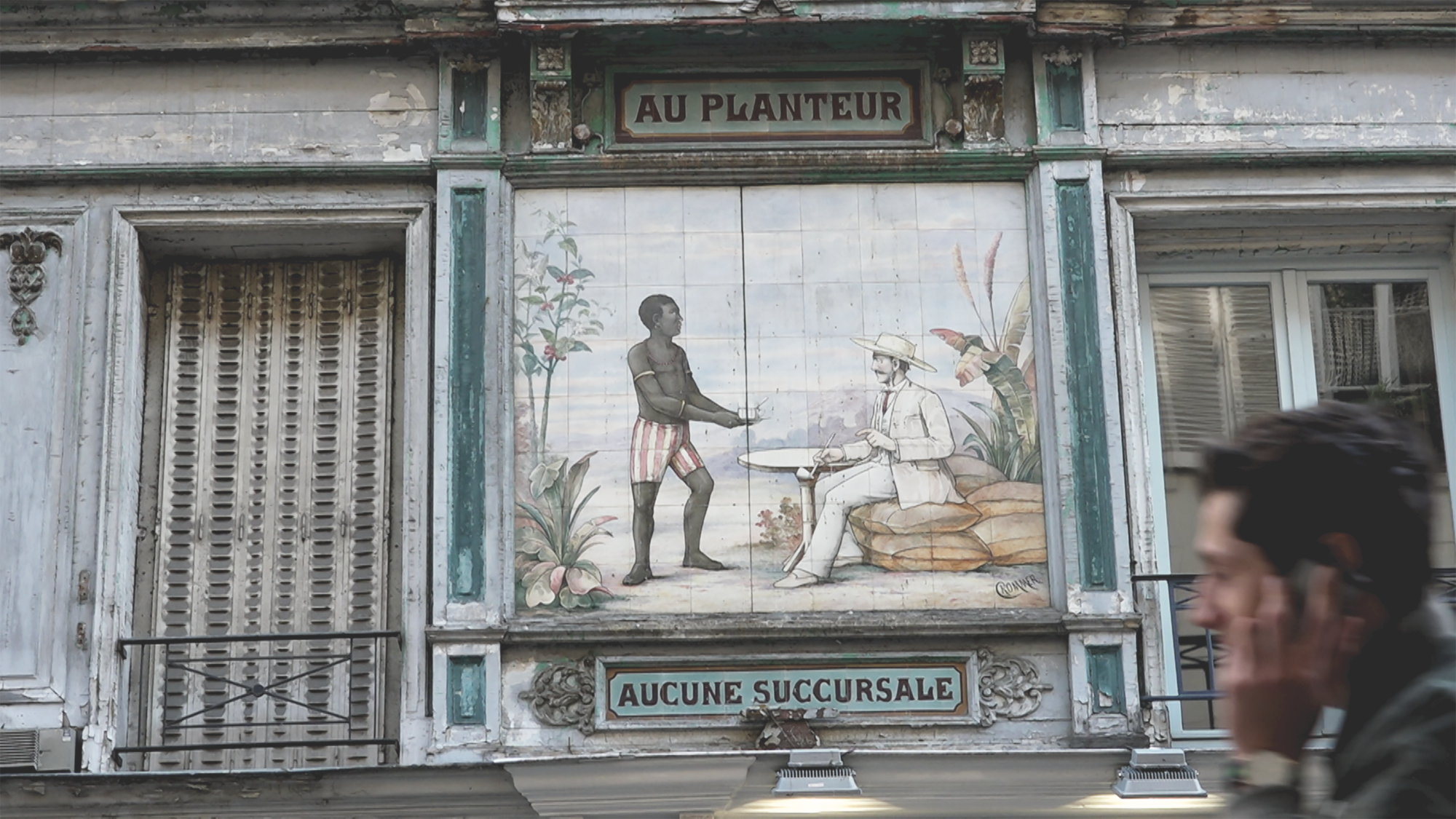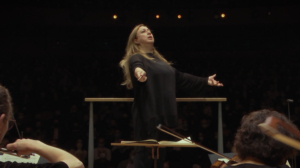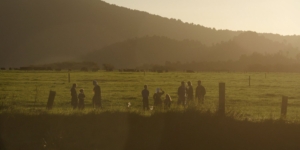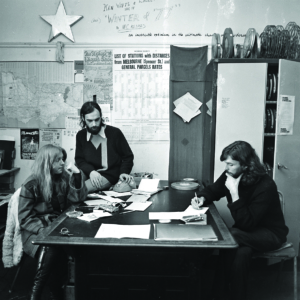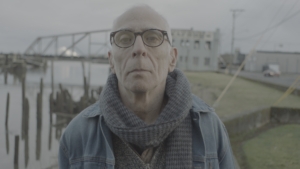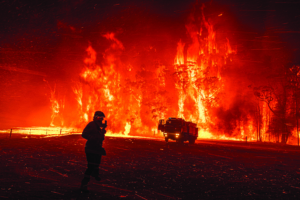Australian directors Les McLaren and Annie Stiven don’t consider Frédéric Duvelle particularly extraordinary. Yet it is the bizarre, entertaining, sad and enlightening twists and turns of the eccentric Frenchman’s life that fill the frames of their intimate documentary Life Is a Very Strange Thing (2017). The film crackles with energy, fuelled by Duvelle’s irresistible charm and intelligence; as a character, he’s every director’s dream: irascible and an oddball; cuddly, endearing and benevolent. A complex man encapsulated in a film that’s impressive in scope yet full of heart as an intimate study of a storied, colourful individual.
Premiering at the Brisbane International Film Festival, Life Is a Very Strange Thing takes us through the French city of Bordeaux, on the banks of the river Garonne. We move down alleyways lined with cafes and shops, nearby patisseries teasing with elegant morsels of sweet treats – among them Bordeaux’s ubiquitous regional desert, canelé. Our tour guide is the unassuming Duvelle, who seems at home in his black Adidas tracksuit and cap; in his company, we prowl antique stores and indulge in red wine and cheese. A scruffy terrier is his constant companion.
McLaren and Stiven have known the Paris native since 1975, when they serendipitously met in Papua New Guinea. Absorbed in making documentaries about the culture and people, the filmmakers became captivated by this young man: seemingly out of place but enthusiastically engaged in ethnomusicology. Prior to this, after being expelled from high school in Paris, Duvelle arrived in Papua New Guinea accompanied by his father, Charles, a composer who had spent over a decade recording indigenous music in the former French colonies in Africa – recordings that, in turn, helped give birth to the world-music movement. Life has been very strange for Duvelle, though it certainly hasn’t ever been dull.
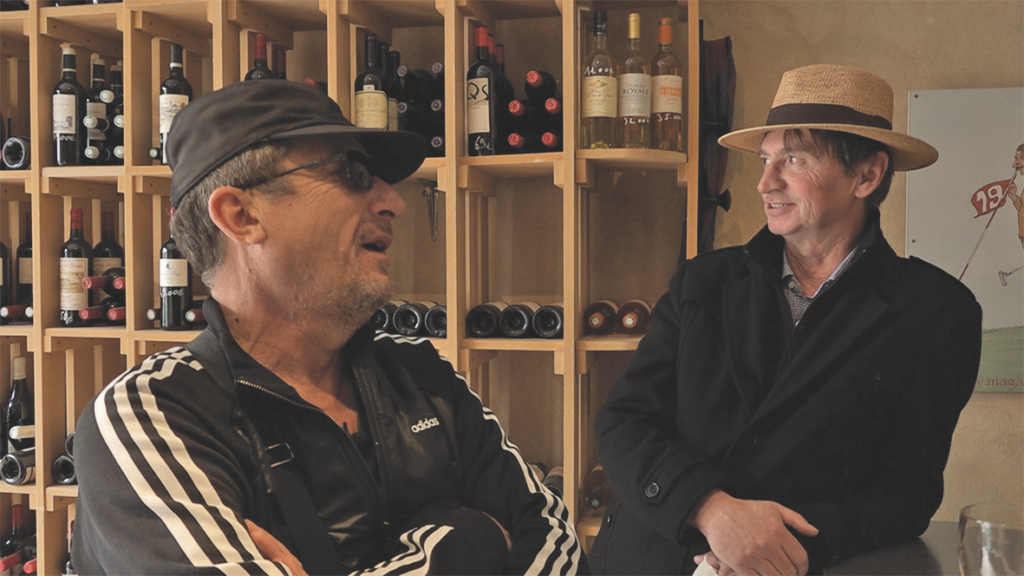
Life Is a Very Strange Thing is part personal travelogue, part treatise on French colonial and postcolonial history spanning continents, and it is also a portrait of the diverse cultures and political leanings flavouring regional Bordeaux and the capital, Paris. McLaren and Stiven offer insights into a society heartily engaged with politics and social change; there’s not-so-subtle subtext offered by almost every French person the filmmakers come across that we laid-back Australians could, or should, be more proactive in our political discourse. This is emphasised as the doco shows locals in cafes and restaurants electrically exchanging ideas on topical issues. For their part, the directors position themselves as mere added texture: they seem happy to be the unobtrusive ciphers for outsider perspectives on Australian culture, which is gently mocked in that charmingly arrogant way that’s so very French.
Absorbing, charming and eccentric, Duvelle has a magnetic personality that somewhat obfuscates his inner scoundrel, which peeks above the surface in revealing snippets. ‘When I quit working, I gave up two things: wearing ties and lying,’ he recounts. An astute opportunist and raconteur, Duvelle’s charm has insinuated him into unexpected political and social circles, including the Freemasons; there’s the feeling that he might be as genuine in his fascination with and love for people as he is in the game of wheeling and dealing. He’s impossible to dismiss or dislike; we develop a bubbling gut feeling of suspicion about an agenda, but, as Duvelle appears to have too much respect for life, love and liberty, we also can’t help but be seduced. In one scene, set in an antique store, the camera lingers on a simple white ceramic plaque engraved with an apt quote: ‘A life lived without passion is no life at all’. Our film’s subject undoubtedly lives his life with passion.
Duvelle is a paradox: endearingly aware of his elastic morality and cynicism, but also so full of light, warmth and a genuine desire to connect and empathise with others.
Duvelle’s complexities – his shortcomings and his contradictory benevolence – make for fascinating viewing. McLaren and Stiven imbue his character with charming details: they present us with an antique-shop addict, obsessing over poetry books, and an avid collector of African masks, which he displays with an effusive boastfulness to his Australian filmmaker friends. Duvelle is eccentric, a bon vivant; ‘eclectic’ doesn’t do him justice. He radiates childlike enthusiasm and a seductive curiosity that simultaneously pulls people in and keeps them at a distance. During his daily wanderings, he consistently interjects in animated discussions with other customers on the merits – or otherwise – of Charles de Gaulle or French Vichy Government military forces (‘the Australians were right to attack the French’). He’s constantly moving, distracted and engaged at the same time; he appears to make his friends feel like the most important people, even when his train of thought has bulleted to the next piece of abstract philosophy or dry witticism.
Starting in Africa, Duvelle made a small fortune as he rose to executive roles in the garbage industry as it evolved into environmental management. In this way, he’s both a conservationist of sorts and – through his political and industry connections, partly resulting from his affiliation with the shadowy Masons – an intuitive businessman, in league with a large multinational company. Duvelle is a paradox: endearingly aware of his elastic morality and cynicism, but also so full of light, warmth and a genuine desire to connect and empathise with others. At worst, he is a rascal, his sins the kind lathered in silky dark chocolate that cascades sensuously and tastes luxurious – much like the irresistible French desserts gracing the screen.
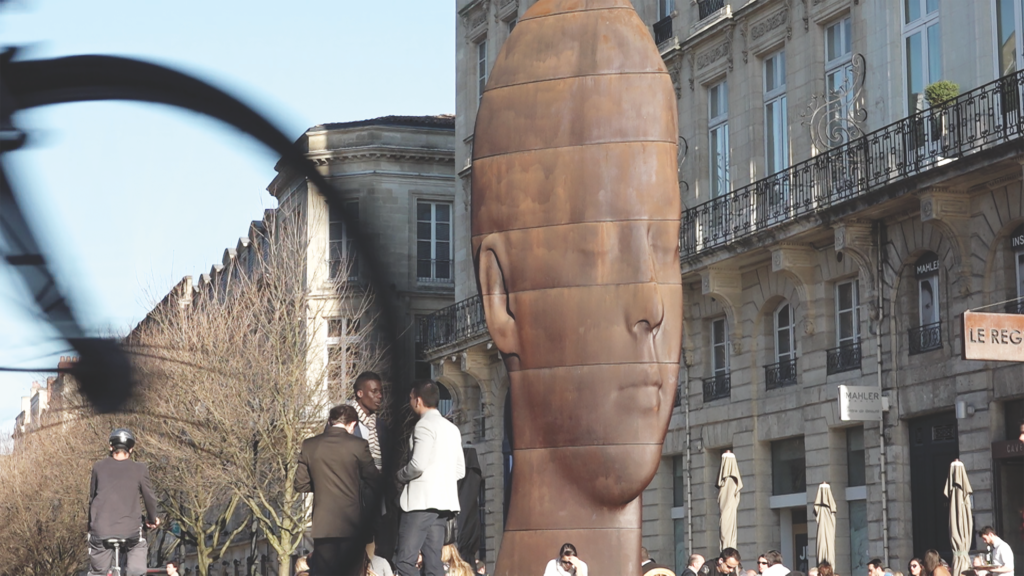
Indeed, Duvelle’s gastronomic indulgences are a delicious backdrop to the less-than-appetising, fractious nature of both French politics and his persona. Duvelle wears his heart, and his views, on his sleeve; through him, the documentary exposes the local tensions that complicate France’s apparently universal sense of nationalistic pride. Through verdant countryside outside Bordeaux, he travels in his distinctly unflashy white Nissan sedan to regional elections held in a rickety town hall. Of course, he knows the volunteer electoral-roll keepers; Duvelle knows everybody. We also learn of how his familial roots are steeped in the historical and political fabric of French culture. Duvelle recounts how his grandfather was a governor in Cambodia, a former colony in French Indochina. His niece Elvire is a dedicated member of activist group Femen, and the documentary’s vast scope takes in as much of provincial politics as it encapsulates the modern spectre of global terrorism; a gripping coda highlights the deadly attacks in Paris in 2015. One of Duvelle’s daughters was at home just 50 metres from where attacks occurred on a restaurant and bar: ‘She could have been there,’ he laments.
After a globetrotting executive career, Duvelle and the Gabonese mother of their two adult children divorced. Interviews with his articulate, well-spoken daughters never suggest resentment; rather, it is genuine love and affection that they convey. Children crave stability; Duvelle’s travels throughout Africa and the Indian Ocean meant long absences and periods of family instability. Sitting in a reclining armchair, Duvelle’s elderly father tells of his inquisitive, temperamental child; in turn, Duvelle junior’s more conceited traits and overbearing opinions have, in adulthood, made him a difficult father. McLaren and Stiven’s interviews with Duvelle’s daughters reveal their remarkable maturity in response to the man they know will never change. For all his faults and inconsistencies, they have made a simple choice to love their father. Remarkably for an eighty-minute documentary, Life Is a Very Strange Thing offers up a feast of a life that has spanned France, Africa and Papua New Guinea; the cumulative influences of a childhood poor in material possessions but blessed with purpose; and a working life of massive success and shrewd business and political ties. The film’s third act shows its subject emboldened by the ego gained from former glories and offering genuine pearls of wisdom learned through adversity, while retaining a Peter Pan sense of wonder and mischief that still burns brightly.
Bordeaux and Paris – with their sweet treats, cosy cafes and conversational delights, notwithstanding the spectre of modern-day terrorism – will forever define Duvelle’s home and heart. His work and family may have taken him to far-flung places, but he seems far more comfortable goading his friends, scavenging through antique stores or barely taking breaths between mouthfuls of camembert and gulps of merlot. To Duvelle, life is a very strange thing – but also a beautiful one. And, to most, he is a character who lives with a vigour that can only be described in one word: ‘extraordinary’.
